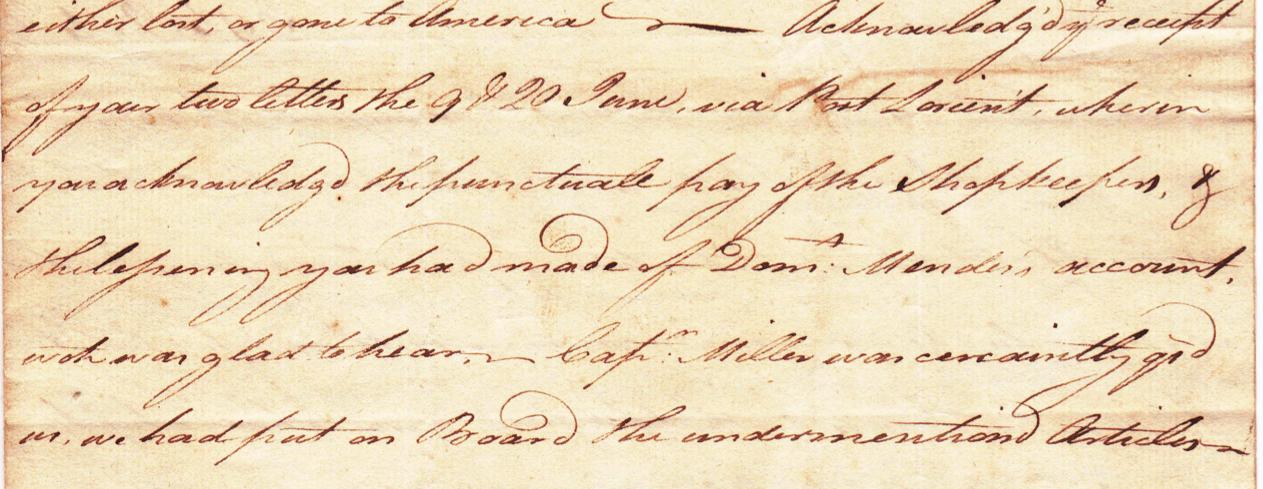

In transcribing a business letter written in 1776, I keep finding an apparent abbreviation, 'qsd' with a line over the s, e.g "this to be qsd my brother." Can anyone tell me what this means?
The letters are hand-written by William Phelps in London to James Morrissey in Madeira and concern the shipping of wine and other commodities between England and Madeira. William, his brother Joseph and James M were in partnership.
I have attached further screen shots.

Below are transcriptions of three passages which include the elusive qsd. "The first ten pps was for Mr Thomas Neale to be qsd my Brother, & the nature of his transaction with us, was you see invested in Wheat,…"
"...& write them to the purport of the letter. I shall write by them, where you may amend as you think proper. One for Mr Hemsted you will ship & one for Capn Miller's owner, this latter to be qsd my Brother & included for account & risque as per advice, having his order by me. Mr Hemsted you will write inclosing him bill of lading for it."
"The five pps of Wine shipt by Wylie have qsd over to Mr Morris, wch made a Ballance for the Furniture had by my Brother, for here & Madeira, so we have no Wines coming our account, but those you will have shipt by Forster & Laurie & I hope shall gett rid of all those on hand long ere those arrive."
I feel that it must be a verb, with a meaning such as "charged to" or "consigned to".
